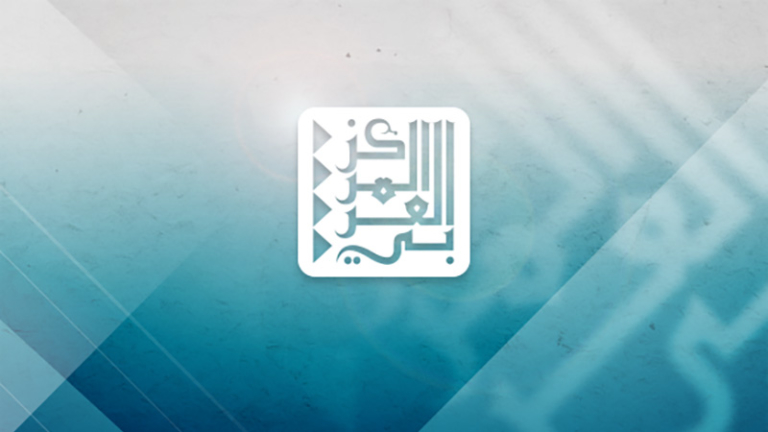
The onset of the so-called “Arab Spring” in 2011 gave hope to millions of people across the Arab world that change is possible and that freedoms, democratic transitions to representative forms of governance, and political and economic reforms are feasible. More than five years later, the Arab world has descended into a spiraling upheaval, and freedom and democracy remain scarce.
One of the significant measures of freedoms and democracy, especially in the Arab world, is religious freedom. Democracy and freedom indices are used by several human rights organization to quantify and measure the level of democracy in a country. Among the factors used to measure democracy are political rights and participation, the electoral process, functioning of government, economic freedom, press freedom, civil liberties, and freedom of religion.
With regard to freedom of religion in particular, the United States Commission on International Religious Freedom (USCIRF) has recently issued its 2016 Annual Report reviewing the facts and circumstances of violations of religious freedom internationally. Several Arab countries are designated “Countries of Particular Concern.”
2016 Report on International Religious Freedom
The US Commission on International Religious Freedom (USCIRF) is an independent, bipartisan US government advisory body created by the International Religious Freedom Act of 1998 (IRFA) to monitor religious freedom worldwide and make policy recommendations. The criteria and recommendations are based on its statutory mandate, Universal Declaration of Human Rights, and international documents.
The 2016 Annual Report of the US Commission on International Religious Freedom (USCIRF) documents abuses of religious freedom that took place from February 1, 2015 to February 29, 2016. The report concludes that in 2016, 17 countries meet the standard to be designated as “Countries of Particular Concern,” or CPCs. A country is designated as CPS (Tier 1) if its government “engages in or tolerates particularly severe violations of religious freedom that are systematic, ongoing and egregious,” including torture, punishment, abduction, detention without charges, and denial of rights.
According to the report, USCIRF recommends designating the following 17 countries as CPC (Tier 1): Burma, Central African Republic, China, Egypt, Eritrea, Iran, Iraq, Nigeria, North Korea, Pakistan, Saudi Arabia, Sudan, Syria, Tajikistan, Turkmenistan, Uzbekistan, and Vietnam. In addition, USCIRF categorizes the following ten countries as Tier 2 (i.e., countries in which religious freedom conditions are serious and characterized by at least one of the elements of the CPC standard): Afghanistan, Azerbaijan, Cuba, India, Indonesia, Kazakhstan, Laos, Malaysia, Russia, and Turkey. Finally, USCIRF places some countries and regions on a monitor list, where freedom issues existed and were monitored in 2015: Bahrain, Bangladesh, Belarus, Kyrgyzstan, the Horn of Africa, and Western Europe.
Religious freedom in the Arab world
Several Arab countries made it to the CPC lists of the USCIRF report, including Saudi Arabia, Sudan, Egypt, Iraq, and Syria, while Bahrain was monitored for violations of religious freedom in the 2015 period. Below is summary of the report’s findings in Arab countries.
Saudi Arabia
Although the report acknowledges improvements in religious freedom in Saudi Arabia (e.g., the government limiting the powers of the Commission for the Promotion of Virtue and Prevention of Vice – CPVPV), it highlights the repressive government practices in restricting freedoms of thought, belief, expression, and worship. Saudi laws prosecute individuals for dissent, apostasy, blasphemy, atheism, and sorcery, target Shi’a dissidents, and prohibit any non-Muslim public worship. Moreover, the CPVPV regularly harasses individuals for holding private non-Muslim worship services at their homes. Few specific prominent cases were discussed in the report including poet and artist Ashraf Fayadh, who was charged with apostasy, allegedly for spreading atheism, and sentenced to death in November 2015 (changed in February 2016 to 8 years in prison and 800 lashes), and Raif Badawi, founding editor of the “Free Saudi Liberals” website, who has been imprisoned since 2012 on charges that include “insulting Islam.” Despite the State Department’s designation of Saudi Arabia a CPC since 2004, an indefinite waiver has been in place since 2006 on taking any action mandated by law as a result of the CPC designation. As a result, in its 2016 annual report, the USCIRF recommended limiting the use of waivers to set time periods and subjecting them to review for renewal.
Sudan
The report concludes that the government in Sudan prosecutes individuals for apostasy and blasphemy, represses the country’s Christian minority, and imposes restrictive interpretations of Islamic law. For example, according to the USCIRF, hundreds of women (Christian and Muslim) are punished every year in Sudan for “indecent” dress. The State Department has designated Sudan a CPC since 1999.
Egypt
The USCIRF 2016 report notes some improvements in religious freedom in Egypt, where the government has taken steps to address intolerance and extremism in religious curricula and discourse, President Sisi encouraged religious tolerance and moderation, fewer attacks against Christians took place, and the constitutional change in 2014 removed several problematic provisions from the 2012 constitution. However, numerous repressive laws remain in place, such as those that restrict the freedoms of thought, conscience, religion, and belief, thus enabling the prosecution of individuals (e.g., atheists) for blasphemy. Moreover, no successful prosecution of attackers for past large-scale violent incidents against Christians and minorities took place, thus fostering a climate of impunity. Moreover, government control over Muslim and religious institutions has intensified after the ousting of former president Morsi in 2013. Egypt has been designated a “Country of Particular Concern” by USCIRF since 2010.
Iraq
The USCIRF concluded that the Islamic State of Iraq and the Levant (ISIL) has committed genocide in Iraq, where religious minorities (e.g., Christians, Yazidis, Shi’a, Turkmen, Shabak) were especially vulnerable and targeted. While the Islamic State of Iraq and the Levant (ISIL) has committed the most egregious violations to religious freedom and human rights in Iraq, other actors have also contribution to violations of religious freedom. For example, the pro-Shi’a Popular Mobilization Forces (PMF) as part of the Iraqi state have committed sectarian attacks against Sunni Muslims, whereas the Iraqi government has not protected religious communities nor curtailed or prosecuted the PMF (partly due to their effectiveness in fighting ISIL). Similarly, while the Kurdish Peshmerga forces were central in fighting ISIL and welcoming refugees and IDPs, non-Kurdish groups have not been integrated into the system of government in the KRG. USCIRF has recommended CPC designation for Iraq since 2008.
Syria
According to the USCIRF report, religious freedom in Syria has been greatly violated by several actors as the crisis has taken a sectarian angle. The Assad regime, on one hand, targeted Arab Sunni Muslims -among others- through combings, sieges, and chemical weapons, while ISIL targeted the regime and regime supporters, and committed human rights violations against religious minorities and Muslims opposing their ideology (e.g., beheading, rape, murder, torture, and destroying mosques and churches). Moreover, violation are committed by armed opposition groups and US-designated terrorist groups. In Idleb and Aleppo, where al-Nusra is dominant, minority religious groups are reported to resort to hiding their identity, for example Christians dress in Muslim attire. USCIRF has recommended CPC designation for Syria since 2014. Relevant to areas in both Syria and Iraq, the USCIRF’s 2016 report recommended expanding the CPC classification to include non-state actors and transnational organizations, where governments are either non-existent, have no control, or are incapable of protecting citizens.
Bahrain
The USCIRF report considers Bahrain a country to monitor for violations of religious freedom. During the past year, Bahrain has seen a rise in interrogations, detentions, and arbitrary arrests of Shi’a Muslims who peacefully protested the government’s human rights record. Although, as the USCIRF report notes, the Bahraini government has made progress in rebuilding mosques destroyed during the 2011 unrest, it did not meet the deadline for rebuilding and it has yet to hold perpetrators of the violence accountable and redress abuses against Shi’a Muslims.
Conclusion and recommendations
While the 2016 Annual Report of the US Commission on International Religious Freedom (USCIRF) is an invaluable resource and documentation of violations of religious freedoms, the situation in Arab countries is more complex. Religious and sectarian conflicts and violations of rights of certain religious and ethnic groups in Arab countries go beyond religious boundaries, and are characteristics of larger geopolitical power structures and the global political economy. In order to address issues of religious freedom in Arab countries, such global geopolitical factors must be addressed and incorporated into the report’s recommendations. Nonetheless, issues of freedom and civil liberties remain the cornerstones for achieving democracy and equality in the Arab world, and must be part of any discussion of Arab democracy, along with issues of governance and the political process.

